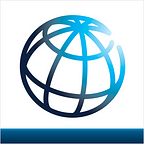This week at World Bank EduTech
week of May 2, 2022
Our World Bank EdTech team recently concluded our second EdTech Policy Academy — “Smart Tech for Learning Recovery” — with 86 participants from across nine countries: Brazil, Cambodia, Ethiopia, Lebanon, Mali, Pakistan, Togo, Tunisia, and Turkey. Participants included World Bank staff, officials from client countries, and partners such as the EdTech Hub and UNICEF.
This is the second time our EdTech team implemented this capacity-building experience, now much more international!
Our World Bank EdTech team provided more than 32 synchronous hours of discussions, debates, presentations, revision of projects, studies and international experience.
How to Navigate the World Bank EdTech Policy Academy Platform
Policy Academy Content
Each country team had access to keynotes, group discussions, access to relevant EdTech resources in the platform (LMS); missions/activities to learn about global experiences; and each team presented a Final Project relevant to support the country dialogue.
Each country team had the opportunity to reflect and discuss the applicability of the five EdTech principles (Ask Why, Build For All, Empower Teachers, Engage the Ecosystems and Be Data-Driven). Although the program was mostly in English, the French interpretation was provided for some teams. In addition, for the presentation of the final project countries had simultaneous interpretation in French and Portuguese. Also, the presentation of the instructors, missions, and supporting material was also offered in French, Portuguese, and Spanish.
Country Participation and Hands-on Projects
The engagement was designed to provide “just-in-time” support and capacity to World Bank staff designing or implementing projects with EdTech components, and at the end of the Policy Academy, a set of concrete outcomes were developed to move the project forward informed by global experience and evidence.
Before the start of the EdTech Policy Academy, each country team was asked to choose one priority topic linked to themes of learning recovery. Based on those pre-identified challenges, the countries worked on developing a concrete output relevant to their World Bank-financed Projects, generating conversations in the online platform, and organizing synchronous team-sessions to discuss. After three weeks of hard work, here are the different country teams’ projects:
- Cambodia: Focused on learning recovery with emphasis on the specific challenge of digitalization of existing learning resources.
- Pakistan: Blockchain credentials to address validity and digitalization of university degrees.
- Ethiopia: Focus on two challenges linked to their Project. Teacher professional development addressing the challenge of teacher knowledge where only 6% of basic education teachers are proficient in the subject they teach; and data focused on digitizing the EMIS system which is currently manual and takes a year to collect data.
- Lebanon: The importance of implementing remedial learning initiatives for Math (focused on Cycle 1 and 2) leveraging existing learning resources and remote support (e.g. via SMS), as well as nudging parents to enhance the learning experience of their children.
- Turkey: Two project focal areas: teacher professional development and innovative teacher networks and digital content for the future — AR/VR and metaverse technologies.
- Tunisia: Focus on developing responses to the challenges of teacher professional development and in particular digital skills as well as System Level Support (governance, EMIS, and monitoring of user’s satisfaction).
- Mali: Remote learning strategies and the development of a Learning Management System (LMS) for Basic Education.
- Togo: Focus on the theme of improving teacher professional development and ensuring that teachers have the necessary digital skills.
- Brazil: Three areas of focus are connectivity, ecosystem development and data. The team is exploring the question of how to facilitate a centralized data system (EMIS) and improve collaboration and communication across federal, state, and municipal levels with an emphasis on the need for improved connectivity.
Synchronous and Asynchronous Activities
Loyal to the idea of “reimagining human connections”, the EdTech team implemented a “high tech” but primarily “high touch” course. Here you can find the recordings of the 3 synchronous sessions:
- Week 1: Kick-Off Meeting of the 2022 EdTech Policy Academy with FCDO keynote and focus on EdTech principle “Ask Why”
- Week 2: session with EdTech Hub keynote and focus on EdTech principles “For All, At Scale; “Empower Teachers”; and “Engage the Ecosystem”
- Week 3: session focused on EdTech principle “Be Data-Driven”, with the participation of data intelligence organization Holon IQ and two sessions focused on EMIS 2.0 and LMS
“Teacher professional development” was one of the central topics chosen for countries, so Barbara Freeman, co-author of the Teachers’ Skills and Skills Frameworks for Remote and Blended Learning Knowledge Pack, was invited to a discussion session on “Transforming Teachers for the New Normal”.
You can find all 2022 World Bank EdTech Policy Academy videos here.
